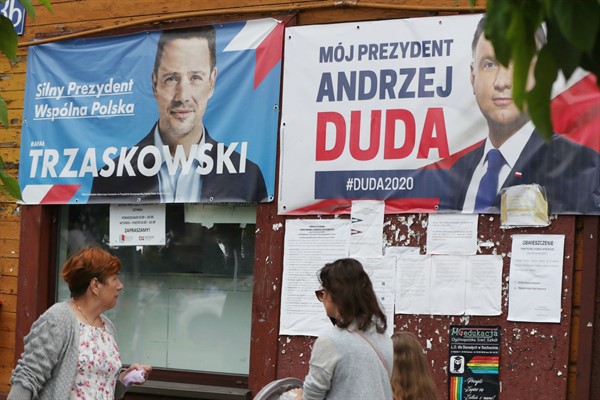During a recent online debate hosted by the Warsaw-based publication Visegrad Insight, a Polish opposition figure commented that in the country’s presidential election, “Poles will have a choice to make between two models of society”—“a European Poland and a Poland that looks at the United States.”
This remark encapsulates an increasingly common understanding of the dynamics at play in the election, which goes to a second and final round this Sunday. The conservative incumbent, Andrzej Duda of the ruling Law and Justice party, or PiS, will face off against his liberal challenger, Warsaw mayor Rafal Trzaskowski, who came in second to Duda in the first round of voting last month.
Given the heated and polarized nature of the race between the two candidates, the idea that Poles have a choice ultimately between Europe and the United States could have been an exaggeration stated amid a political debate. Still, the dichotomy it presents must be taken seriously, as it reflects a larger divide in the trans-Atlantic relationship. At a time when global politics is being defined again by great-power competition, this time between the United States and China, it matters that Polish voters could perceive themselves as having to choose between Europe, represented by the liberal Trzaskowski, and the United States, personified by the right-wing nationalist Duda.

